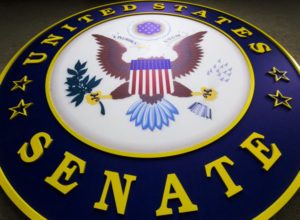Can the U.S. Senate Pass the FAA Reauthorization Act of 2024 Before Friday?
 Amidst Challenges, the Act Receives Strong Support from the Commercial Drone Alliance
Amidst Challenges, the Act Receives Strong Support from the Commercial Drone Alliance
The U.S. Senate is facing new uncertainties in passing the five-year FAA Reauthorization Act before the upcoming deadline next Friday, May 10. Despite the Senate not reconvening until Tuesday and only just starting formal negotiations concerning time agreements and amendments, Senate Majority Leader Chuck Schumer expressed a firm desire to avoid short-term measures and aim for a complete passage of the reauthorization next week. “We want to get this done in the quickest, best way possible,” Schumer stated, emphasizing the need for cooperation among the senators to navigate the complex amendment process and secure a timely agreement.
According to an article on the political website Punchbowl News, significant among the proposed amendments are efforts to restrict the TSA’s use of facial recognition technology, championed by Senators Jeff Merkley and John Kennedy, and other pivotal changes such as the scrapping of a provision to add flight slots at Washington Ronald Reagan National Airport. Further proposals include codifying policies for automatic refunds for canceled or delayed flights, extending the Affordable Connectivity Program, and supporting the Kids Online Safety Act, demonstrating the broad scope and impact of the bill across various sectors.
Meanwhile, the Commercial Drone Alliance has openly endorsed the bipartisan FAA Reauthorization Act of 2024 (H.R. 3935), underscoring the critical provisions it holds for the growth of the U.S. drone industry. According to the Alliance, this legislation is pivotal for ensuring the FAA and the drone industry can thrive, matching pace with global advancements. “This important legislation will bring much-needed stability and continuity to both the Federal Aviation Administration (FAA) and industry, and enable the U.S. drone industry to keep pace with other countries around the world,” the Alliance noted in a recent statement.
The Commercial Drone Alliance points out that H.R. 3935 aims to foster a regulatory environment conducive to the expansive use of drones across various applications including emergency response, infrastructure inspection, and agricultural practices, among others. The Alliance praises the Senate Commerce and the House Transportation & Infrastructure Committees for their diligent work in crafting a bill that promises substantial safety, security, equity, sustainability, and economic benefits through enhanced drone operations.
As the Senate pushes forward with the FAA bill, the involvement of diverse amendments and the challenge of aligning multiple interests underscore the complex legislative process. Yet, the overarching goal remains clear: to pass a comprehensive bill that not only reauthorizes FAA operations but also propels the U.S. drone industry forward into a new era of innovation and public service.


